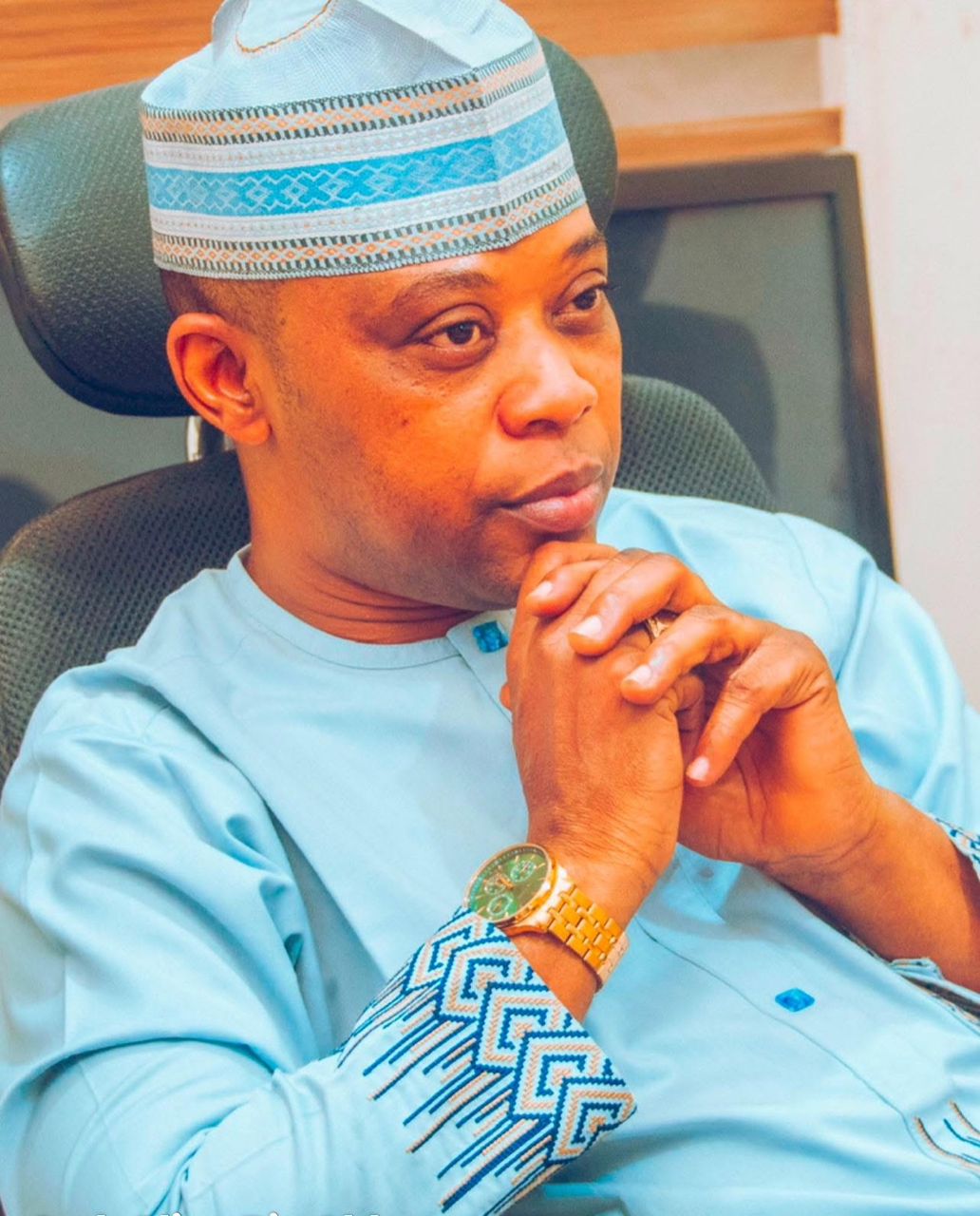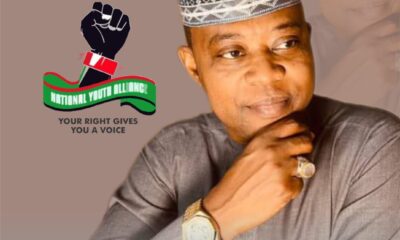News
Criticism of Youth Inclusion under the Tinubu Administration
Published
1 month agoon

By Amb Aliyu Bin Abbas
“Tokenism is not transformation.”
Despite early rhetoric around inclusivity and national rebirth, the Tinubu-led administration has fallen short in meaningfully integrating Nigerian youth into national development, governance, and policy-making. Below are the key criticisms by the Youth President
1. Symbolic Inclusion, Not Structural Empowerment
• While a few young individuals were appointed into advisory or mid-tier roles, this did not translate into real decision-making power.
• Critical ministries — Finance, Defense, Petroleum, Power, and Education — remain dominated by older political elites.
• The so-called inclusion of youth in government has largely served optics, not policy impact.
Youth are seen, but not heard; applauded, but not trusted with leadership.
2. Unemployment Remains at Crisis Level
• Under Tinubu, youth unemployment has hovered around 50%, with underemployment and informal work further masking the crisis.
• There has been no bold national strategy targeting mass youth job creation or tech-enabled entrepreneurship.
• The economy remains hostile to startups, with high taxation, unstable forex, and poor infrastructure frustrating young innovators.
3. Youth Economic Policies Are Missing or Muddled
• Promised economic buffers like student loans and youth enterprise grants are either delayed, poorly implemented, or lacking transparency.
• There is no centralized youth-focused economic fund, despite campaign promises.
• Programmes like N-Power have suffered budget cuts, irregular payments, and poor monitoring, leaving beneficiaries in limbo.
4. Youth Voices in Politics Still Marginalized
• Despite the “Not Too Young to Run” Act, political participation for youth is still blocked by high nomination fees, patronage systems, and godfatherism.
• National Youth Councils and platforms have been politicized, underfunded, or hijacked by special interests.
• Genuine youth leaders and reformers are sidelined in favor of loyalists with limited grassroots credibility.
5. Education and Skill Alignment Still Broken
• Curriculum reform remains outdated; Nigeria still teaches 1980s syllabi in a 21st-century world.
• The administration has failed to integrate digital skills, climate education, AI, and entrepreneurship into schools.
• Polytechnics, vocational centers, and public universities continue to suffer from poor funding, strikes, and obsolete training.
6. Digital Economy Opportunities Not Prioritized
• The tech ecosystem — where Nigerian youth thrive — has not received any coordinated federal stimulus.
• Policies remain incoherent on cryptocurrency, remote work, and digital identity systems.
• Meanwhile, neighboring countries like Ghana, Kenya, and Rwanda are outpacing Nigeria in building youth-driven digital economies.
7. Tokenized Consultations, Ignored Recommendations
• Young stakeholders are often invited to summits and policy events after decisions have already been made.
• White papers, youth communiqués, and policy suggestions are rarely followed up or implemented.
• Government agencies lack a standardized feedback mechanism to track youth engagement outcomes.
8. Security and Civic Trust Eroding Among Youth
• Widespread police brutality, mass arrest of protesters, and internet censorship have pushed youth into disillusionment.
• The administration has not pursued justice for EndSARS victims or enacted concrete police reform.
• Civic spaces for youth voices — online and offline — are increasingly monitored, threatened, or discredited.
Conclusion: A Generation Left Behind
President Tinubu’s administration, though filled with early optimism, has so far failed to deliver a generational shift in leadership or livelihood for Nigerian youth.
While token appointments and superficial programs may create headlines, they fall drastically short of the structural, economic, and political inclusion Nigerian youth demand and deserve.
“You can’t call youth the future while locking them out of the present.
Amb Aliyu Bin Abbas
Youth President & Chairman
National Youth Alliance NYA.
You may like
-


$3.3 Billion Controversial Loan: FG, APC Betraying Nigeria’s Future – NYA
-


National Youth Alliance (NYA) Activates National Elders Council
-


National Youth Alliance (NYA) Announces Appointment Of Deputy National Chairmen, Zonal, State Directors
-


Empowering the Future: The National Youth Alliance/Youth President Agenda (Part2)
-


2027: Kano’s Saidu Danladi Heads Youth President Agenda
-


National Youth Alliance Condemns Attempt To Arrest Its Member In Borno

ONSA debunks El-Rufai’s allegations of ransom to Bandits

Chairman of SAGAMA HOMES Donates Food Items to Orphanage in Kano

PANDEF mourns late Former IGP, Solomon Arase

Kano-based female journalist gets African media network appointment

JUST IN: FG approves increase in electricity tariff


